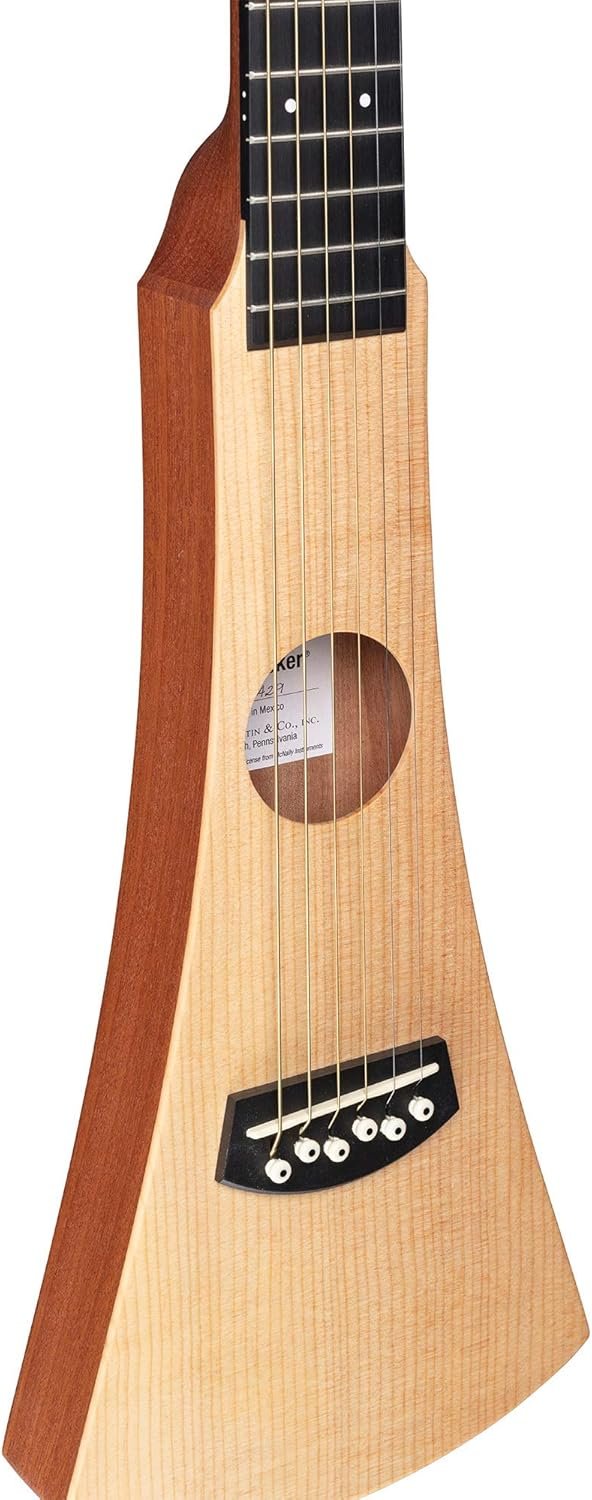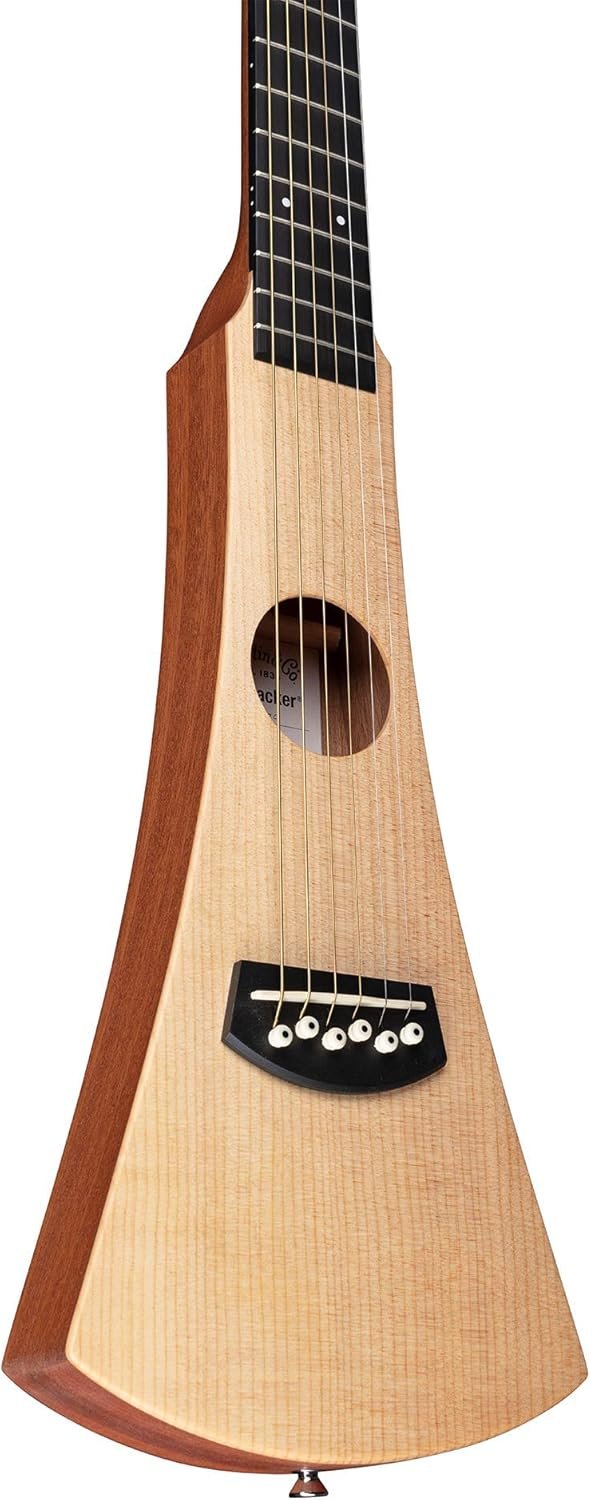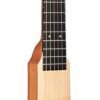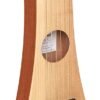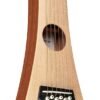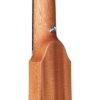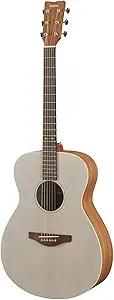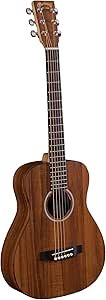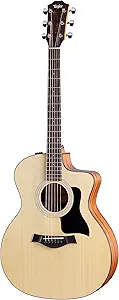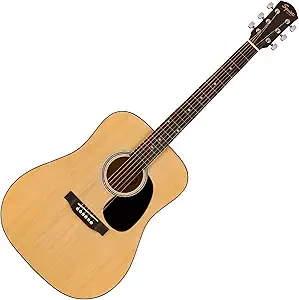Martin Steel String Backpacker Travel Guitar 11GBPC review lightweight acoustic for travelers
Martin Steel String Backpacker Travel Guitar 11GBPC review lightweight acoustic for travelers
- Compact design ensures it fits easily into tight spaces, making it perfect for travel.
- The lightweight build allows for effortless portability without sacrificing durability.
- Its rich, warm tone punches above its size, delivering impressive sound quality for a travel guitar.
- The sturdy neck and fretboard feel comfortable and reliable, even for extended play.
- Comes with a padded carry bag, adding both convenience and protection.
As an Amazon Associate I earn from qualifying purchases.
Description
Compact Design and Build Quality
The Martin Steel-String Backpacker Travel Guitar is nothing short of a marvel when it comes to compactness and portability. At just 5.15 pounds, it’s incredibly lightweight, making it the perfect companion for road trips, camping adventures, or even casual jam sessions in the park. The unique body shape, while unconventional, serves its purpose brilliantly by allowing it to fit into tight spaces. I was initially skeptical about how the natural wood finish would hold up to wear and tear, but the mahogany back and spruce top provide both durability and visual appeal. Plus, the included padded carry bag is a thoughtful touch that protects the guitar from minor bumps during travel.
The fixed bridge system and hardwood fretboard give it a solid feel, even though it’s clearly designed for mobility. While the 24-inch scale length might feel a bit different compared to full-sized guitars, it doesn’t take long to adjust. Honestly, I was pleasantly surprised by how comfortable and balanced it felt in my hands despite its unusual proportions.
Performance and Sound Quality
Now, let’s talk about the sound. Given its size, I wasn’t expecting the Backpacker Travel Guitar to deliver a full-bodied tone, and that’s where it both surprised and slightly underwhelmed me. The solid spruce top and bronze strings produce a sound that is surprisingly bright and clear, with decent volume for such a small-bodied instrument. However, it does lack the depth and resonance you’d get from a standard-sized acoustic guitar.
While testing it, I noticed that the guitar shines in high-end tones, making it great for fingerpicking or light strumming. That said, if you’re planning on heavy strumming or looking for a bass-rich tone, this might not be your go-to instrument. It’s not a deal-breaker, though. I found it perfect for casual sing-alongs by the campfire, where the focus isn’t on studio-quality sound but rather on having a reliable, portable instrument.
Ease of Use and Playability
One of the key benefits of this guitar is its playability. The unique contour neck shape is ergonomic, making it easy to hold and play for extended periods. Whether you’re a beginner or a seasoned guitarist, the 15 frets are accessible and responsive. I had my nephew, who’s just starting to learn the guitar, give it a try, and he found it much easier to handle than my full-sized dreadnought.
Tuning stability is another strong point. The fixed bridge system and quality tuners ensure that the guitar stays in tune even after hours of playing. I also appreciated the ambidextrous design, which makes it a versatile option for both right-handed and left-handed players.
Good Points
This guitar offers several positives that make it a standout option for its niche:
- Lightweight and portable, ideal for travel and outdoor activities.
- Durable construction with a solid spruce top and mahogany back.
- Comes with a padded carry bag for added protection.
- Bright, clear sound suitable for casual playing.
- The unique neck design ensures comfort and ease of use.
Potential Shortcomings
As much as I enjoyed using this guitar, there are a few drawbacks worth noting:
- Limited bass response, which might not appeal to all players.
- The unconventional body shape can take some getting used to, especially for those familiar with traditional acoustic guitars.
- Not ideal for heavy strumming or genres that require a fuller sound.
These issues don’t overshadow its strengths but are worth considering depending on your needs.
Market Rivals
In comparison to similar travel guitars like the Taylor GS Mini or the Yamaha JR1, the Martin Backpacker stands out for its ultralightweight design and portability. However, the Taylor GS Mini offers a richer, more dynamic tone, albeit at the cost of increased weight and size. The Yamaha JR1, on the other hand, is more affordable and delivers a balanced sound but lacks the unique portability of the Backpacker.
Where the Martin Backpacker excels is in its rugged simplicity. If you’re looking for something that can withstand the rigors of travel without compromising too much on sound quality, this guitar is a solid choice. However, if tone and versatility are your top priorities, competitors like the GS Mini might be worth considering.
Affordable Quality
From a cost-efficiency standpoint, the Backpacker Guitar strikes a good balance between price and functionality. While it’s not the cheapest option out there, its durable construction and travel-friendly design make it a worthwhile investment for musicians who are frequently on the move. I wouldn’t call it a replacement for a full-sized acoustic, but it’s a fantastic secondary instrument to have in your collection.
For anyone who values portability and reliability over tonal perfection, this guitar delivers in spades. Whether you’re a casual player or a seasoned traveler, it’s a product that fits effortlessly into a variety of lifestyles.
Additional information
| Item Weight | 5.15 pounds |
|---|---|
| Product Dimensions | 37 x 10 x 4 inches |
| Item model number | 11GBPC |
| Is Discontinued By Manufacturer | No |
| Back Material | Mahogany |
| Body Material | Wood |
| Color Name | Natural |
| Fretboard Material | Hardwood |
| Scale Length | 24.0 |
| String Material | Bronze |
| Top Material | Spruce |
| Neck Material Type | Mahogany |
| Number of Strings | 6 |
| Guitar Bridge System | Fixed |



